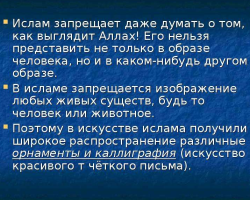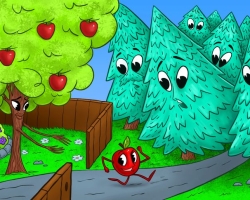Who is talking about the winged expression: “Happy hours are not observed”? If a person’s life is filled with love, happiness and interesting things, and there are people dear to him, and time seems to speed up his run, then this is all about him.
Content
- "Happy hours do not observe": direct and figurative meaning of phraseological unit
- "Happy hours do not observe": an explanation in one word
- “Happy hours are not observed”: who said from which work this winged phrase is taken?
- What synonym can be chosen for phraseological units "happy hours do not observe"?
- "Happy hours do not observe": sayings and proverbs similar in the subject
- “Happy watches are not observed”: how to make a sentence with phraseology?
- Video: Phraseologism lesson
For the lucky man, time seems to turn into a certain abstract value - the day is replaced by a new day, a year flies after year. And the world reciprocates him - good people rejoice in his happiness, and the earth begins to rotate faster and faster. This for people indifferent and lazy lasts an endlessly long time, and there are usually not enough happy and enthusiastic about 24 hours.
"Happy hours do not observe": direct and figurative meaning of phraseological unit
- "Happy hours do not observe" -The direct meaning of this, in general, outdated phraseology is quite difficult to reason. After all, now no one will say, for example: “I don’t have a clock for this,” but rather they say “I have no time for this.”
- And if someone suddenly decided to literally understand the meaning of this expression, then it could only cause bewilderment. After all, how can this be understood - if a person is happy, then he will blind? And why does it stop seeing the clock, and not anything else?
- It is impossible to disagree with the fact that the lover is likened to the blind. And at this time, let at least the whole world will fall into tartarara - by and large all this does not matter to him, if only his beloved person remains nearby.
- The portable meaning of the phraseology “Happy watches is not observed”: Really happy people do not notice the currents of time.
"Happy hours do not observe": an explanation in one word
- Phraseologism “Happy watches” is not observed, used in cases where they say about happy life moments of people.
- At that moment, they seem to become “blind” and “deaf” to the whole world around them and do not notice the flow of time.
- We can say that time flies unnoticed, Happy lovers become scattered and not attentive. And all the most important is concentrated only in themselves, but at that moment they do not need any other.

“Happy hours are not observed”: who said from which work this winged phrase is taken?
Surely, still at school, they got acquainted with the work “Woe from Wit”. This comedy was written by the great classic of Russian literature, Alexander Sergeyevich Griboedov, and it is precisely to him that this authorship belongs to this, which later became winged, the phrases "happy hours do not observe."
Recall the passage of the work from which this phraseology is taken:
- “[Lisa] Look at the clock, look out the window:
- The people are falling through the streets for a long time,
- And in the house, knocking, walking, marking and cleaning.
- [Sophia] Happy watches do not observe. ”
With these words, the main character of the comedy answered her maiden Sofya Famusova Caution on her call, as a strict father can catch her with her lover - after all, morning has already come.
Now, rarely, someone remembers from whose light hand this winged expression fluttered, but almost everything is pronounced from time to time.

What synonym can be chosen for phraseological units "happy hours do not observe"?
- 24 years earlier than the Griboedovo “Woe from Wit” saw the light, the German poet Johann Friedrich Schiller wrote in his drama ” Piccolomini ":" Die Uhr Schlagt Keinem Gliicklihen "What is translated into Russian means - "Happy watches do not beat".
- Who knows - it is quite possible that Griboedov borrowed this expression from him, but Russian people are used to saying this way: "Happy hours do not observe"a "Happy clocks do not beat" -it's just synonymthis phraseological unit.
"Happy hours do not observe": sayings and proverbs similar in the subject
- Most often, people pronounce, looking at a couple in love that does not notice anyone and nothing around: "Happy hours do not observe."
- But the people even said to Griboedov: “Happiness does not look at the clock,” “It will appear with the dear and the year old and the year old,” “When you go to your beloved, you don’t feel the bites of mosquitoes.”
“Happy watches are not observed”: how to make a sentence with phraseology?
- This is approximately the way the young man can answer his parents, dissatisfied with his late return home: “Time flew so imperceptibly for us with Anyuta that I was late for the last train, because you yourself perfectly understand - happy hours do not observe!”
- Sometimes this idiom is also used in a playful form. Imagine the situation: an office, emergency work in a friendly coordinated team, the end of the working day. “Wow, the working day ended so quickly today,” said Masha, turning off the laptop, “but happy hours are not observed!” On this occasion, journalists of the Soviet era loved to use such a cliche in their essays: "Tired but satisfied, they returned home from work."

Have you noticed that when the couple walked easily, cheerfully and at ease along their life path, then by the departure of their years they usually say: “Life flew as if it were just one moment - they did not observe happy hours”? Of course, happiness can be variable and unstable. But it is worth trying to grab the tail of a firebird by the tail to enjoy every moment of a happy life. So that people can say exactly about you: "Happy hours do not observe!"
Useful articles on the site, about the origin of phraseological units and sayings:
- “I got up from the wrong foot
- "The farther to the forest, the more firewood"
- "If the mountain does not go to Mohammed, Magomet goes to the mountain"
- "The mosquito of the nose will not undermine"
- "Good word and a cat is pleasant"







